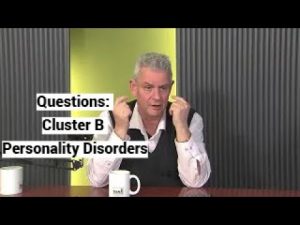- 1.1 1. Introduction and Context
- 1.2 2. Characteristics of Narcissists vs. Psychopaths
- 1.3 3. Narcissist’s Perception and Treatment of Others
- 1.4 4. The Cancel Reflex
- 1.5 5. Cold Empathy and Emotional Response
- 1.6 6. Envy and Emotional Dynamics
- 1.7 7. Consequences of Narcissist Behavior
- 1.8 8. Grandiosity Against Immaturity
- 1.9 9. Idealization as Defensive Strategy
- 1.10 10. Narcissist Interactions and Conflict Cycles
- 1.11 11. Romantic Distancing and Narcissistic Relationships
- 1.12 12. Infidelity and Relationship Dynamics
- 1.13 13. Broader Social Impact and Final Outcomes
Why Narcissist Couldn’t Care Less About YOU: Cancel Reflex, Romantic Distancing
1. Introduction and Context
- The speaker shared a recent conversation with Antoan Pavan, who runs the largest French YouTube channel about narcissism and narcissistic abuse, highlighting the nature of the interview and participants involved. [00:00]
2. Characteristics of Narcissists vs. Psychopaths
- Narcissists are not malicious or evil but are indifferent and contemptuous, contrasting with psychopaths who often have malevolent intent. [01:10]
- Narcissists lack cunning or goal orientation but are driven by a compulsive need for narcissistic supply, acting like addicts. [02:00]
- Narcissists see others as inferior and interchangeable, commoditizing people as objects or NPCs (non-player characters) in their mental fantasy. [02:20]
3. Narcissist’s Perception and Treatment of Others
- Narcissists deny their dependency on others and devalue people to maintain a sense of superiority and control. [03:15]
- They convert people into “snapshots” or internal objects, allowing aloofness and detachment without emotional response. [04:00]
- People are seen as nuisances or obstacles rather than individuals, reflecting the narcissist’s cancel reflex. [04:30]
4. The Cancel Reflex
- Narcissists automatically “cancel” people, denying their reality and agency, turning them into two-dimensional figures in their mental narrative, unlike cancel culture which targets specific transgressions. [04:50]
- Blame is projected onto others as if they were passive objects failing to fulfill roles, intensifying alienation and lack of empathy. [06:00]
5. Cold Empathy and Emotional Response
- Narcissists possess cognitive and reflexive empathy (recognition and bodily reaction) but lack emotional resonance, regret, or remorse, similar to psychopaths. [06:25]
- This leads to repeated damaging and discarding of others, contributing to antagonism, reckless behavior, and endless conflicts. [06:45]
6. Envy and Emotional Dynamics
- Narcissists are virulently envious and resent others’ happiness while rejoicing in their suffering, driven by lack of empathy combined with entitlement and exploitiveness. [08:00]
- Their perception of themselves as the sole source of others’ emotions causes distress when others exhibit joy independent of them. [08:50]
7. Consequences of Narcissist Behavior
- Narcissistic cancellation leads to adversarial relationships with reciprocal aggression and retaliation, ending in a cycle of harm and karmic payback. [10:00]
- Narcissists’ psychological immaturity (similar to that of a toddler) limits their grasp of complexity and nuances in relationships. [11:00]
8. Grandiosity Against Immaturity
- Narcissists display a paradox of infantile mental age with grandiose claims of superiority, creating cognitive dissonance that unsettles others. [12:30]
- This dissonance fosters aggression and envy in others, as children (infants) are not supposed to wield such destructive power. [13:20]
9. Idealization as Defensive Strategy
- Some narcissists and psychopaths idealize others to reduce conflict, co-idealize themselves, and sustain the illusion of their supremacy. [14:30]
- However, most narcissists are openly contemptuous, self-contained, indifferent to others’ opinions, and unashamed of antagonizing people. [15:50]
10. Narcissist Interactions and Conflict Cycles
- Overt or implicit canceling by narcissists leads to mutual antagonism, aggression, and hurt with an inevitable price paid through retributive social responses. [16:50]
- Despite external appearances of success, narcissists experience internal decay and alienation. [17:40]
11. Romantic Distancing and Narcissistic Relationships
- Romantic distancing occurs when former full relationships degrade into functional but emotionally absent partnerships due to inertia, dependency, or social constraints. [18:15]
- Narcissists promote romantic distancing as it suits their needs for isolation and alternative relationships outside the primary bond. [19:10]
12. Infidelity and Relationship Dynamics
- Narcissistic partners may openly flaunt extramarital affairs, evolving through triangulation (jealousy provocation), rage, and eventual emotional neglect. [20:20]
- Emotional absence and selfishness erode love, friendship, and decency, culminating in the partner’s abandonment. [21:15]
13. Broader Social Impact and Final Outcomes
- In all contexts—including workplace and friendships—the cancel reflex leads to isolation and ultimate abandonment of the narcissist by others. [21:50]
- Narcissists lose others’ personal autonomy, joy, social supports, and ultimately become isolated targets facing retribution. [22:35]
*All timestamps are approximate, based on the transcript flow.






